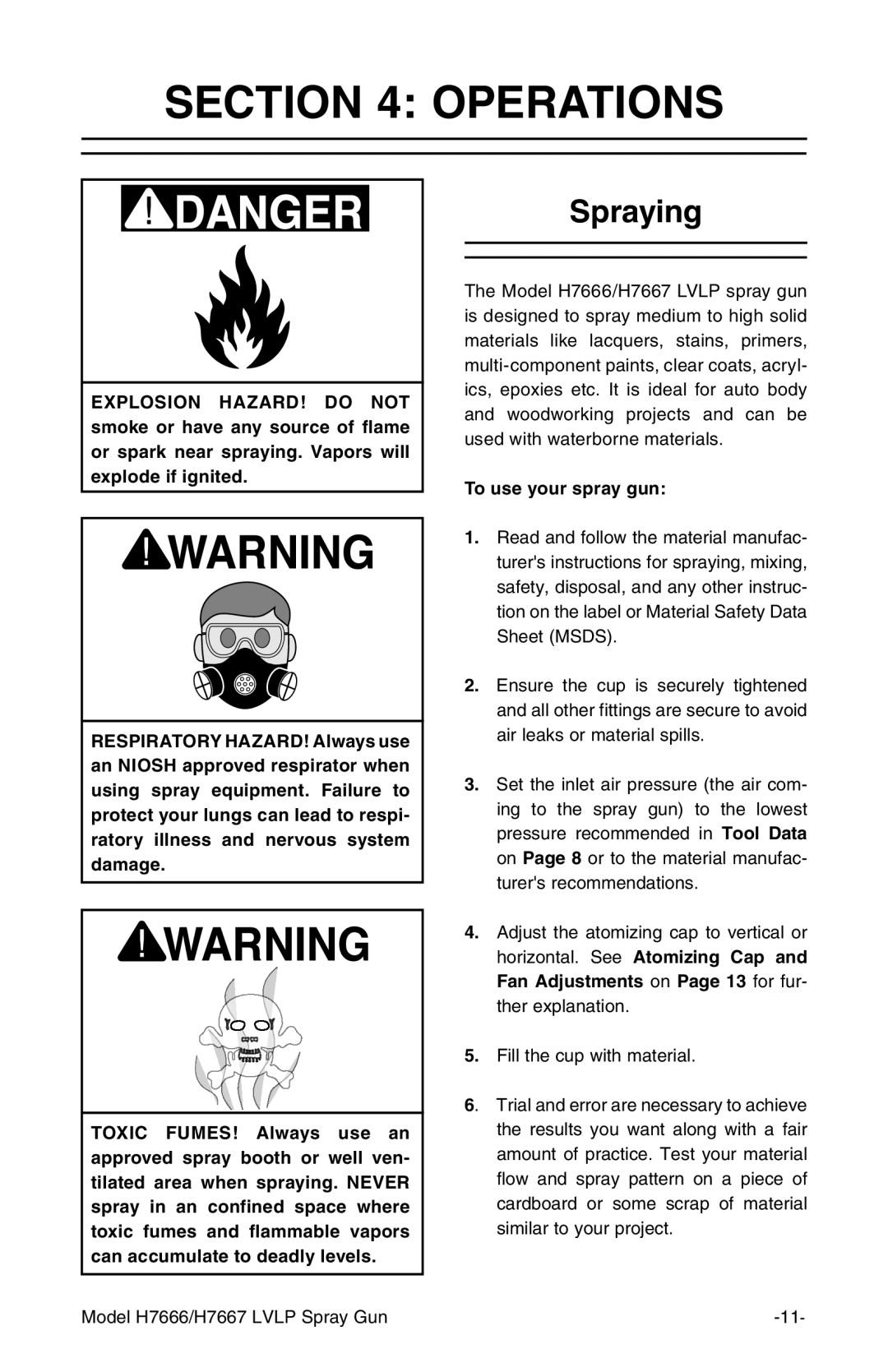
SECTION 4: OPERATIONS
Spraying
EXPLOSION HAZARD! DO NOT smoke or have any source of flame or spark near spraying. Vapors will explode if ignited.
RESPIRATORY HAZARD! Always use an NIOSH approved respirator when using spray equipment. Failure to protect your lungs can lead to respi- ratory illness and nervous system damage.
TOXIC FUMES! Always use an approved spray booth or well ven- tilated area when spraying. NEVER spray in an confined space where toxic fumes and flammable vapors can accumulate to deadly levels.
The Model H7666/H7667 LVLP spray gun is designed to spray medium to high solid materials like lacquers, stains, primers,
To use your spray gun:
1.Read and follow the material manufac- turer's instructions for spraying, mixing, safety, disposal, and any other instruc- tion on the label or Material Safety Data Sheet (MSDS).
2.Ensure the cup is securely tightened and all other fittings are secure to avoid air leaks or material spills.
3.Set the inlet air pressure (the air com- ing to the spray gun) to the lowest pressure recommended in Tool Data on Page 8 or to the material manufac- turer's recommendations.
4.Adjust the atomizing cap to vertical or horizontal. See Atomizing Cap and Fan Adjustments on Page 13 for fur- ther explanation.
5.Fill the cup with material.
6. Trial and error are necessary to achieve the results you want along with a fair amount of practice. Test your material flow and spray pattern on a piece of cardboard or some scrap of material similar to your project.
Model H7666/H7667 LVLP Spray Gun |
